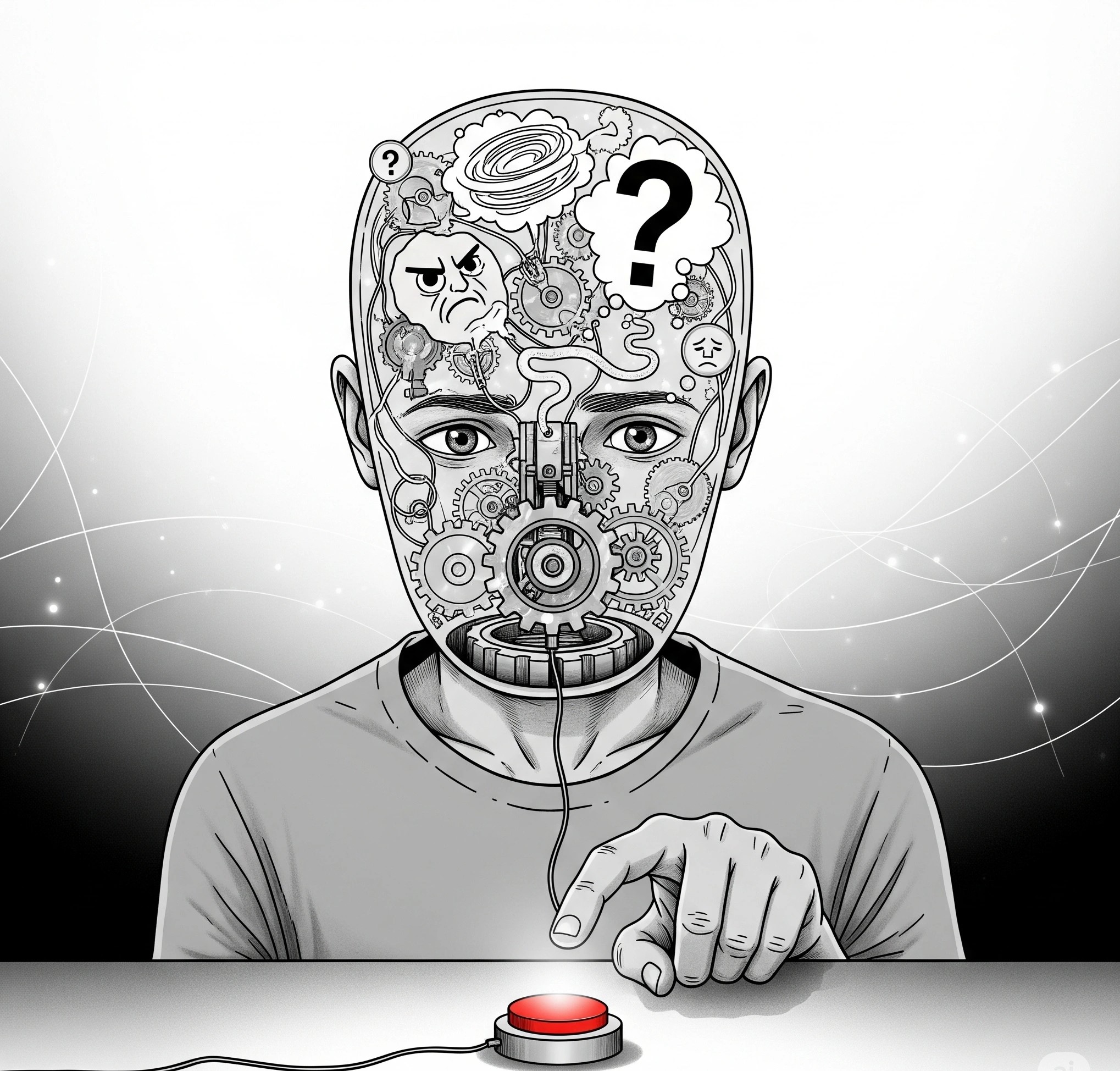The Psychology of Pointless Interaction

The Psychology of the Useless Button: A Digital Sigh Against Efficiency
In a hyper-optimized world where every digital interaction is designed with a clear purpose—to sell, to inform, to connect—the concept of a pointless interaction stands as a fascinating psychological anomaly. We are conditioned to believe that our actions must yield a tangible outcome, yet countless individuals find themselves drawn to things that do nothing. This attraction to the useless button, for example, is not a bug in our cognitive programming; it is, in fact, a feature that reveals much about our deep-seated human needs. The psychology of pointless interaction taps into several core human desires, all of which are often suppressed by the demands of modern life. It's a digital sigh, a moment of defiance against a world that constantly demands efficiency. The act of clicking a button that doesn’t save a file or send a message is an act of pure presence. It allows us to be in the moment, free from the mental burden of consequence or expectation. This freedom from purpose can be profoundly therapeutic, offering a brief escape from the relentless pressure to be productive.
A Micro-Break from Cognitive Overload
One of the most significant psychological functions of pointless interaction is its ability to serve as a micro-break from cognitive overload. Our brains are constantly processing information, making decisions, and managing tasks, a state that can lead to decision fatigue and burnout. A useless action, by its very nature, requires no cognitive effort. There is no problem to solve, no choice to make, and no result to analyze. This brief moment of mental downtime allows the brain to shift from a focused, high-energy state to a more relaxed, diffuse mode of thinking. This diffuse state, often activated during activities like daydreaming or a mindless walk, is where our minds can make novel connections and process information in the background. Thus, a seemingly pointless click can paradoxically lead to a creative breakthrough on a task you were previously struggling with, proving that sometimes, the most productive thing you can do is nothing at all.
Reclaiming Autonomy in a Controlled World
Furthermore, pointless interaction can be seen as an act of reclaiming autonomy in a world that often feels out of our control. From algorithms that dictate what we see to corporate structures that define our daily tasks, our lives are increasingly governed by external forces. The useless button offers a small but powerful space where we are in complete control. We choose to click, we choose to do it again, and the lack of a pre-determined outcome makes the action entirely ours. It’s an expression of free will stripped of any external justification. This sense of personal agency, even over something as trivial as a button, can be a powerful antidote to feelings of powerlessness and can help restore a sense of self-worth that is independent of our productivity or utility to others. This aligns with minimalist and Zen philosophies that emphasize the value of presence and the liberation that comes from detaching from the need to constantly achieve.
The Crucial Role of Play
The concept of play also plays a crucial role in the psychology of pointless interaction. Play is an essential part of human development and well-being, fostering creativity, problem-solving, and social bonds. Critically, play is defined by its lack of a serious purpose. Children stack blocks only to knock them over; they build imaginary worlds for no other reason than the joy of it. As adults, we are often discouraged from this kind of purposeless play, yet the need for it never disappears. A useless button is a perfect, low-stakes avenue for this adult play. It’s a moment of delightful absurdity that reminds us not to take everything so seriously. It sparks curiosity and humor, allowing us to engage with a digital object in a way that is purely for the sake of play itself. In a world that often treats our leisure time as another opportunity for self-improvement (e.g., "learn a new language on your commute"), the useless button stands as a bastion of unapologetic fun. It’s not about doing nothing, but about doing something that doesn’t need to mean anything, and in that, it offers a unique kind of freedom where simply being is enough.